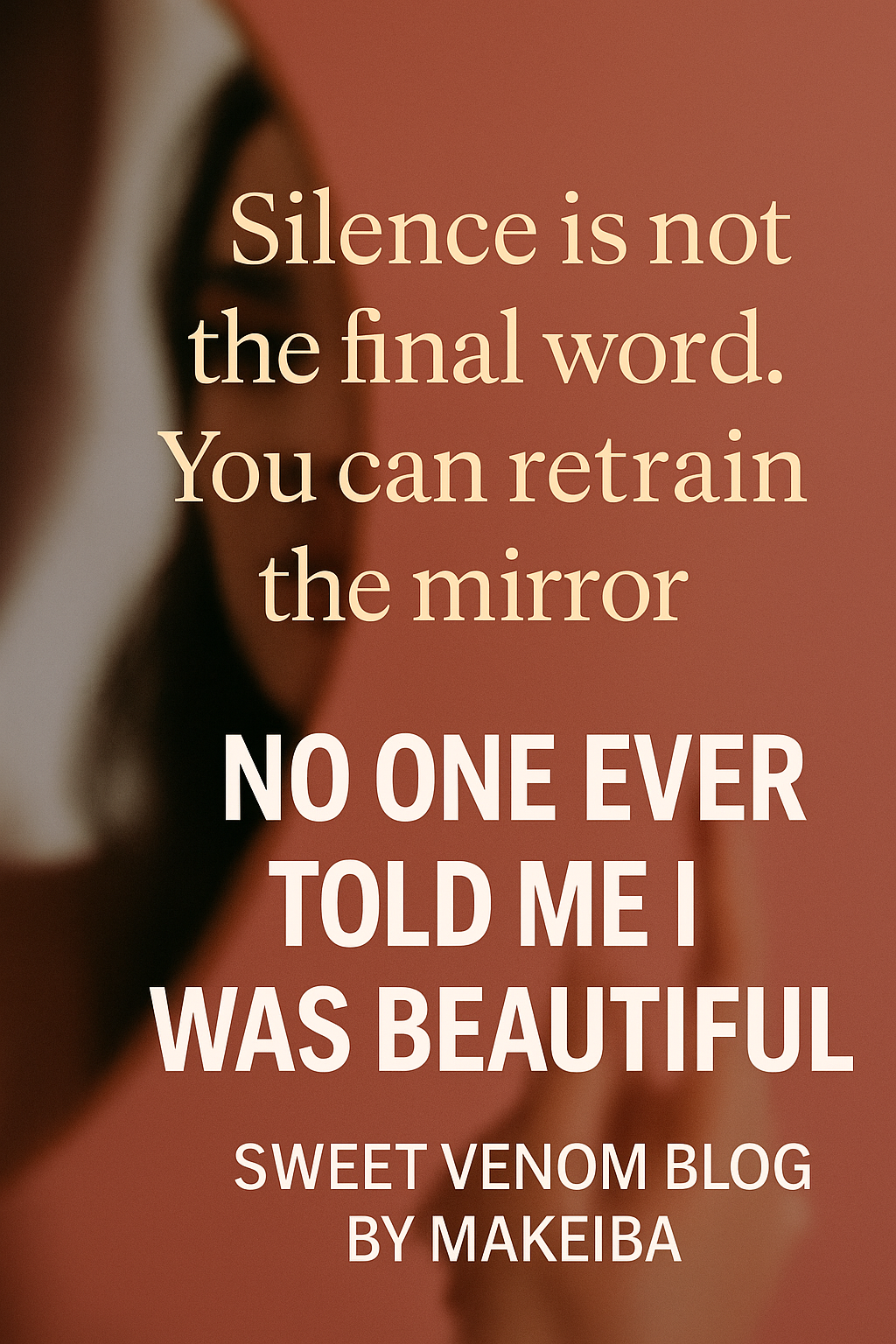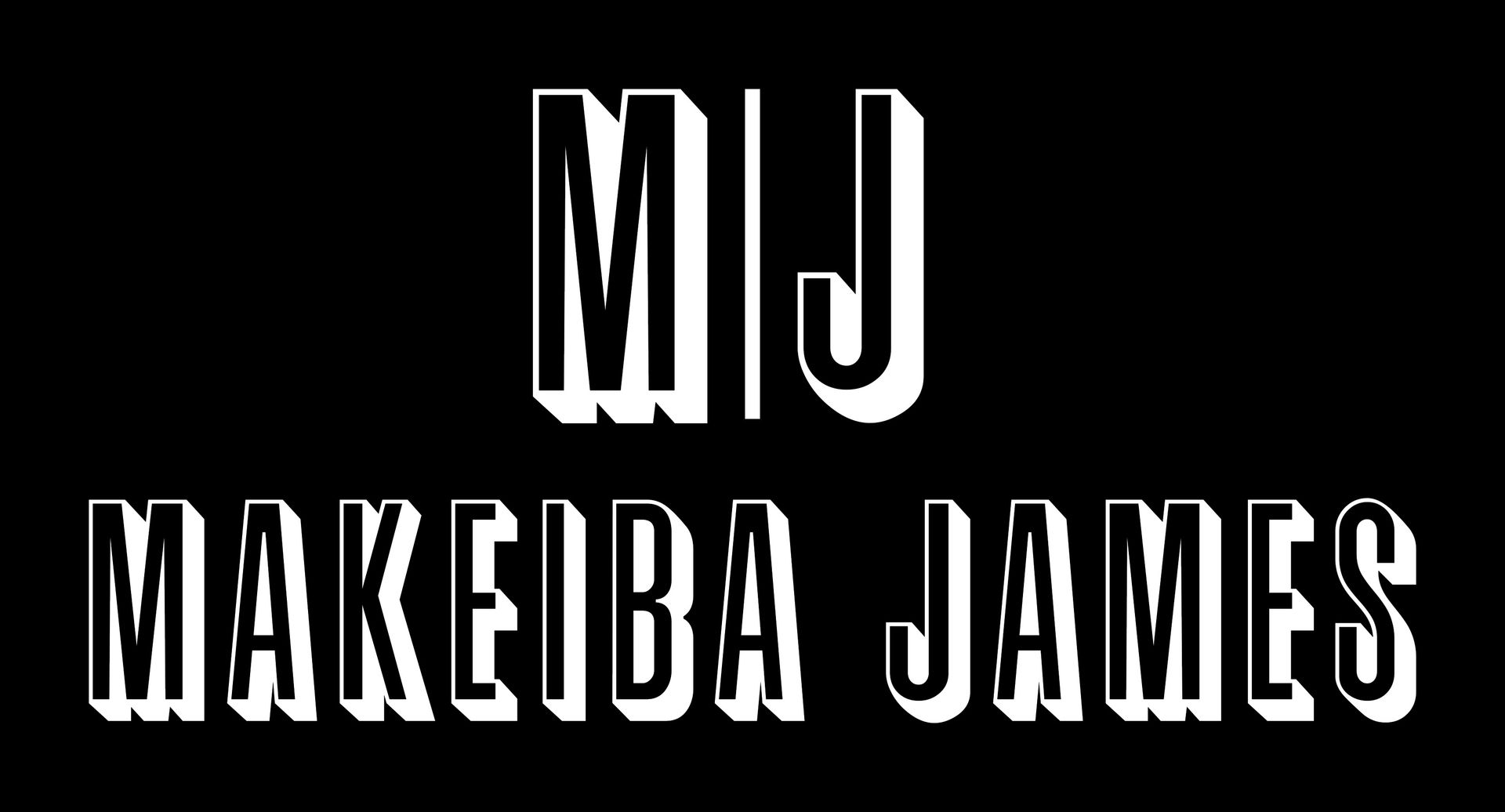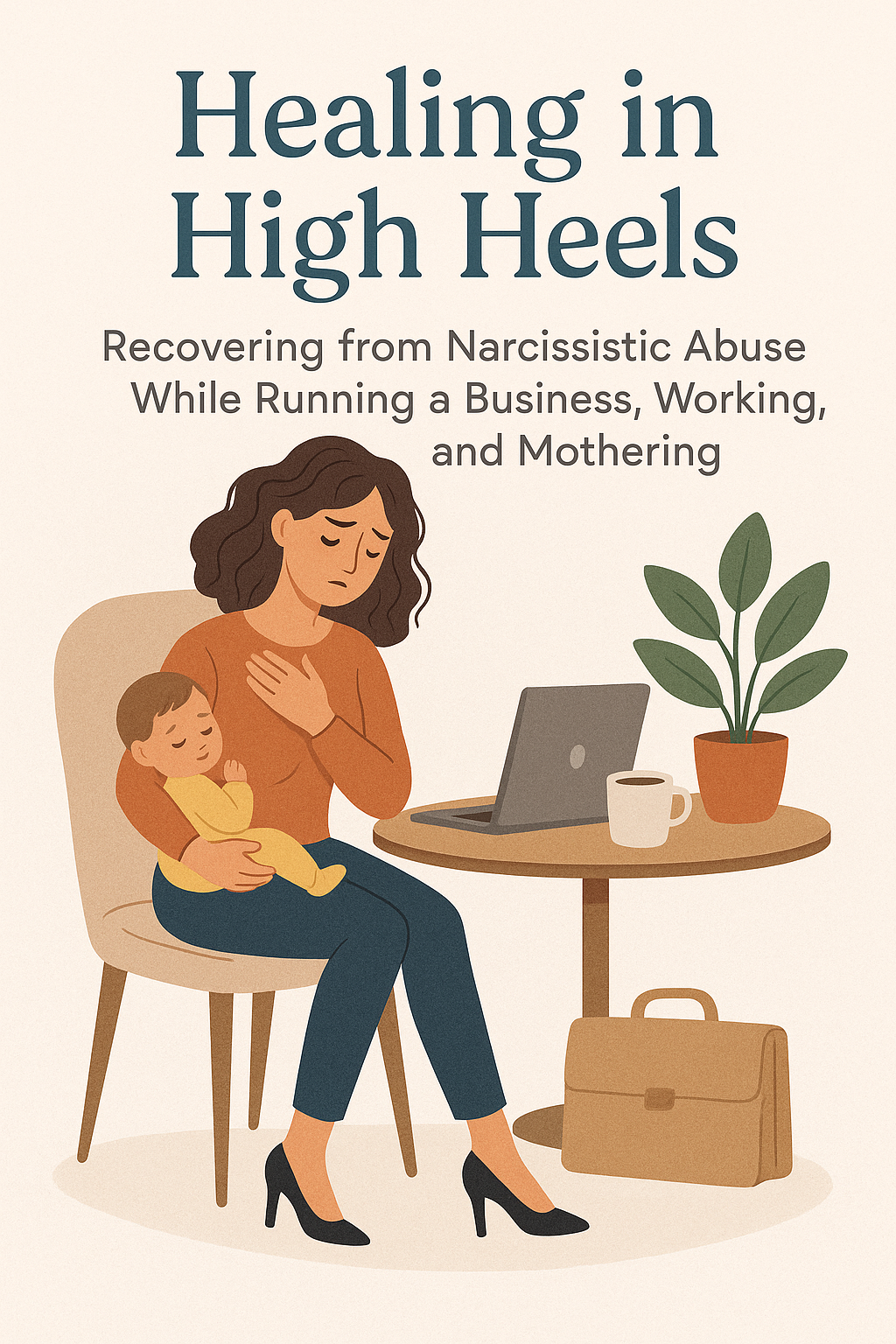“No One Ever Told Me I Was Beautiful”: How Silent Childhoods Shape the Mirror We Carry Into Adulthood
Makeiba James • September 26, 2025
Many grow up without hearing “you’re beautiful” from family. This silence shapes our self-image. Here’s why it matters—and how to heal.

When I was little, the women on my mother’s side rarely—if ever—called me beautiful. No “you look lovely,” no “your smile lights the room.” Just…silence.
Meanwhile, my father’s sisters gushed over me, and one aunt—let’s call her Aunt M—stitched outfits by hand, turning plain fabric into magic. She never said a thousand fancy words, but the hems and seams said something: “You’re worth making something beautiful for.”
It took years to notice the split-screen: love flowing on one side, drought on the other. And it’s only recently I realized how much that drought trained my inner mirror—how I learned to scan for flaws faster than I could receive praise.
If this is your story too, you’re not alone—and you’re not imagining the impact. Psychologists have long argued that children learn who they are by how caregivers reflect them back. When a caregiver’s face lights up—“I see you”—the child’s sense of “I exist and I’m good” coheres. When the mirror is blank or harsh, kids adapt: they hustle for crumbs, become hyper-vigilant, or learn to distrust their own shine.
What silence does to a child’s self-image
Silence can be as shaping as criticism. Studies link parental warmth and verbal affection with healthier self-esteem and emotional regulation later in life. When warmth is missing, the void doesn’t stay empty—it’s often filled with self-doubt, anxious self-monitoring, or a lifelong suspicion of praise.
That doesn’t mean appearance-focused praise should replace deeper affirmation. In fact, research warns that how we praise matters: “person praise” (“you’re beautiful/smart”) can sometimes backfire, while “process praise” (“I love how thoughtfully you put yourself together”) builds resilience. Still, the total absence of positive reflection—especially from primary caregivers—can leave a mark that shows up in the mirror for decades.
When family comments cross into harm
Beyond silence, many of us grew up with appearance-related teasing—the casual “you’re getting big,” the relatives who policed our hair, skin, or shape. That’s not harmless. Studies show family teasing is linked to body dissatisfaction, disordered eating, and unhealthy weight-control behaviors well into adulthood.
And there’s the modeling effect: daughters often absorb their mothers’ body talk. If Mom constantly criticizes her own body, that script gets passed down.
A small story about a blue dress
When Aunt M made me a bag of girly clothes - each outfit a mini replica of her tailored fits and those she made for clients. I will never forget the day she came for me to spend the weekend and give me the huge bags - I had never seen so much clothes - FOR ME - in my life. Little did she know how this changed my life. She made it know to me in no uncertain terms “these are just for you - a little girl should be dressed like a little girl- like a pretty flower like God intended” she said. I didn’t understand then: she was hiding a message in the lining. Beauty as a private truth, not a public performance. Those dresses felt like safety.
But when I wore it to a family gathering, no one on my mother’s side said a word. I learned to lower my expectations to zero. That’s the thing about silence—it trains you to edit out your own glow.
What we can do now
The good news: the mirror you carry can be retrained.
Rebuild warmth on the inside.
Practice self-compassion. Talk to yourself the way you wish your caregivers had.
Balance the praise mix. Receive compliments about your look (you deserve them) and add “process praise” for what you do.
Detox your environment.
Surround yourself with people and media that affirm diverse beauty and dignity.
Name childhood neglect. Naming the wound brings clarity and liberation.
Re-mirror with intention.
Find and cultivate people who reflect you warmly—and become that face for yourself.
A three-step “mirror ritual” (5 minutes daily)
See.
Look at yourself neutrally—just notice.
Say.
Speak one identity line (“I am beautiful in my being”) and one process line (“I love how I showed up for myself yesterday”).
Seal.
Touch your heart and say: “I am my own good mirror. I won’t abandon me.”
Journal prompts
Rewind:
A time I looked for praise and found silence was… The story I told myself was… The truer story is…
Remap:
If Aunt M sewed me a dress today, what message would I stitch into the hem for future-me?
Rehearse:
Write the six lines you wish a loving mother had said to eight-year-old you.
Read it aloud for a week.
To the reader who is still waiting
If your mother or her sisters never called you beautiful, you learned early to survive on low oxygen. That survival makes you resourceful—but it also makes you tired. You’re allowed to want more than survival.
You’re allowed to want ease. You’re allowed to be seen.
And here’s the truth: it is never too late for a new mirror.
✨ You don’t have to carry silence forever. Your story matters. Your reflection matters. You matter.
💻 Read more and join the conversation at www.makeibajames.com
🛍️ Explore my store for books, tools, and products that will help you retrain your mirror and reclaim your power.
👉 #SweetVenomBlog #HealingJourney #SelfWorth #InnerChildHealing #YouAreEnough #WomenWhoRise #BreakTheSilence #ReclaimYourPower #FromPainToPurpose #GenerationalHealing #WhenTheSpellBreaks #PineappleThoughts #MakeibaJames















